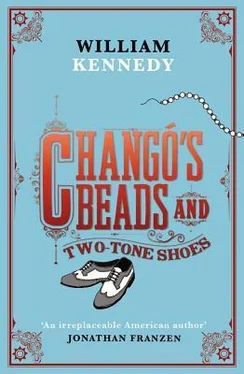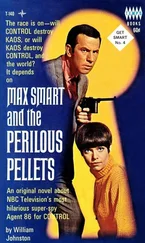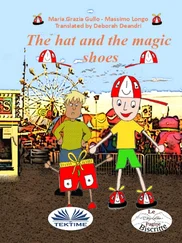“What word?”
“Nigger.” She whispered it.
“Nigger Dick, I knew him well.”
“Yes, but you shouldn’t say his name like that anymore. Just call him Dick, and don’t say nigger.”
“That’s his name. Nigger Dick. He was part of the Sheridan Avenue Gang. I knew every one of them. There was only one Nigger Dick.”
“Just don’t say it anymore, okay? You understand? Don’t say it or he’ll throw you out. Roy can get very excited.”
“Roy, who’s Roy?”
“The bartender. He said his name was George, but it isn’t.”
“Right. He’s not George, I’m George.”
“You certainly are. George Quinn.”
“That’s me. Will you be going dancing at Beauman’s this evening?”
“You’re still thinking about Beauman’s.”
“It’s right up to snuff. King Jazz’s orchestra. You can’t beat it. I don’t recall your name.”
“Vivian, Vivian Sexton, George. You know me a hundred years.”
George took off his hat and held it out to her. “It’s venerable to know you so long, Vivian,” he said.
“You are such a gentleman,” she said.
“I would be privileged to buy you a drink, Vivian. We could sit at that table over there. I’m on my way to the Club and I have to cash a check. The clock of life is wound but once and no man has the power to tell just where the hands will stop.”
“That certainly is true, George, and it’s a very poetic thing to say. I’d be glad to have a drink with you.”
George placed his hat over his heart and he asked her, “Will you kiss me now or will you wait?” And Vivian kissed him on the cheek.

Max Osborne, wearing a white guayabera, alone at the end of the bar, studied Roy and saw the father in the son, a much larger version, a laboring man’s arms and chest, a heavyweight, but the undeniable child of Cody: that same rigid backbone, same barrel of a chest, hands with their long fingers, skin a shade lighter than Cody’s, but no evidence in the son of Cody’s quiet talent for avoiding public conflict. This fellow had a talent for chastising the world. But he’s Cody’s boy. Like Max’s girl. Children of a new day.
Max compared Roy with the four photos on the wall above the baby grand, blowups of the man and his icons: Fats who took Cody on as a protégé, and Billie — ah Billie, so unbelievably young, with the young Cody playing while she hits a note with eyes closed. Also — with the open back of a piano, trombone on the floor, light on a cymbal — the Duke, hunched at the keys so you couldn’t know it was him, but who else could it be? And then Bing, leaning on the piano and singing at Cody, telling him to shine. Bingety-bing-bing.
“That photo of Sonny and Bing Crosby,” Max said to Roy. “You know anything about that picture?”
Roy squinted for a tighter look at Max, then turned down the TV.
“You know Sonny?”
“Since the late thirties. You’re his boy.”
“Boy. Do I know you?”
“My name is Max. Do you?”
“I heard of a Max. But the man’s not Sonny anymore.”
“I know all about it. I thought it’d get your attention.”
“How come you know so much?”
“I could tell you a story about the night your father played and Bing sang. I was there. You run this place for your father?”
“Not my line. What do you do, Max?”
“That’s a personal question and I don’t usually answer personal questions on religious grounds, Roy, and I am a religious man. But I’ll answer you because you’re Sonny’s boy, Cody’s boy, and Cody is a genius, although who am I to say that? A musical moron, that’s who I am. But I have been a golf star, an actor on TV, I ran a newspaper in Cuba, I’m a retired spy, I taught literature in college, I’m producing a movie about Bing Crosby, who’s an old friend of mine, and that’s not a complete list. What’s your line?”
“Goin’ to college and bustin’ my ass to do it. Who’d you spy on?”
“The universe. You know who took that Bing photo?”
“Cody knows.”
“He does indeed. I took it. And where is Cody? He coming here?”
“He’ll come by, but he won’t stay. He’s got a concert.”
“Where?”
“DeWitt ballroom. His Farewell Concert they’re calling it.”
“Farewell to what?”
“Cody’s sick.”
“No. How sick?”
“Walkin’-around sick. Lung cancer.”
“Hey, no, no. Since when?”
“He’s got some time, but not a whole lot. He can still play.”
“Where do I get a ticket?”
Roy went to the cash register and took a pack of tickets off the back bar. He put a ticket in front of Max.
“Twenty bucks, dinner included. It’ll help pay some medical bills.”
“I’ll take two,” and Max put a hundred-dollar bill on the bar.
“Will you turn up that TV, Roy?” a woman at the bar said. “They’re talking about Bobby.” Roy raised the volume and a TV newsman said the vigil outside the Los Angeles hospital where Robert Kennedy lies, perhaps mortally wounded, is ongoing. Attorney General Ramsey Clark said today that there is no evidence of a conspiracy at this moment in the shooting.
Roy gave Max a second ticket plus sixty bucks change and served the beer drinkers down the bar. “I met him when he campaigned here for senator,” Roy said. “He mighta made a good president.”
“I knew him in L.A. when he was chasing Marilyn,” Max said. “Bing played golf with Jack.”
“Bing and Jack, Bing and Sonny, Bobby and Marilyn. You know everybody. Anybody you don’t know?”
“There’s these two guys in China.”
“So who shot Bobby?”
“I’d bet on the mob. The Teamsters hated him, Hoffa especially. But somebody’ll blame the Cubans. They always blame the Cubans. But they hated him too.”
“I’ll bet you know Fidel, right?”
“We’re pals. You like Fidel?”
“I respect him. He beat the system, did the time, fought the fight. He’s been good to blacks from this country. I like it that he rattles the cages of politicians in this country.”
“You do any time lately, Roy?”
Roy stared at him.
“I know a few things about you. You’re a political animal.”
“I’m political. I’m no animal.”
“Bad word choice. I apologize. Radical, that’s closer to it, isn’t it, you and the other Brothers? A maverick among mavericks, isn’t that so?”
“The Brothers say what needs sayin’.”
“Tell ’em what’s on your mind. Admirable.”
“What’s on your mind, Max? What is this quiz you got goin’?”
“I hear things, Roy. I hear the Brothers got the Albany cops on their backs, and the Mayor too. That’s a heavy load, the cops and the Mayor.”
“Who the hell are you?”
“Max Osborne. Your father played piano for my ex-wife in Havana. Esme Suárez.”
“Esme. She’s Gloria’s mother.”
“Bingo. Gloria. My little girl.”

Renata was squirming on a metal bench in a corner of the empty day room when the orderly arrived with Gloria. Renata embraced her niece.
“She’s packed but she doesn’t want to go,” the orderly said.
“Is that true, mi amorcita ?” Renata asked.
Gloria shook her head no, then nodded yes. She was dressed to leave, white blouse, black slacks, heels, her beautiful yellow hair brushed into a familiar, casual fall. She looked like herself except for her violet eyes, which were wide with alien bewilderment.
“You want to stay here?”
Gloria shook her head no.
“Everybody here thinks it’s all right for you to leave. Will you come home with me?”
Читать дальше














